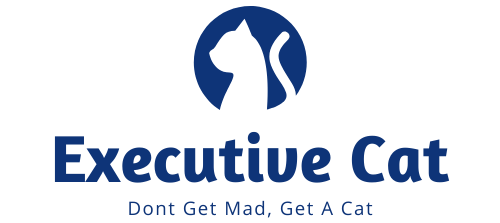1. The Basic Nutritional Requirements of Cats
2. What Can Cats Eat?
3. Do Cats Need Vegetables and Fruits in Their Diet?
4. Are Beans a Healthy Option for Cats?
5. Other Human Foods That are Safe to Feed Your Cat
6. Foods that Should be Avoided by Cats at All Costs!
7. Signs of Poor Nutrition in Your Cat’s Diet
8. Supplements That May Be Beneficial For Your Cat’s Health
1. The Basic Nutritional Requirements of Cats
Cats are wonderful creatures and they need to be taken care of just like any other pet. When it comes to their nutrition, cats require a specific balance of proteins, carbohydrates, vitamins and minerals in order to stay healthy. They also need enough water each day as dehydration is a common health risk for them. A good way to make sure your cat is getting the right amount of nutrients is by feeding them premium quality wet food that’s specifically designed with cats’ nutritional needs in mind. High-quality dry foods can also provide essential vitamins and minerals but should always be supplemented with wet food or
2. What Can Cats Eat?
Cats can be picky eaters, but generally they need a diet that includes protein, fat, carbohydrates, vitamins and minerals. The best way to feed your cat is with high-quality commercial cat food that’s specifically designed for cats. You can also supplement their diet with canned fish (like tuna), cooked eggs, small amounts of lean meat or cooked vegetables like carrots and peas. Just remember not to give them any human foods that are toxic to cats such as onions or garlic!
3. Do Cats Need Vegetables and Fruits in Their Diet?
When it comes to your cat’s diet, vegetables and fruits are an important part of the equation! Cats need a balanced diet that includes proteins, carbohydrates and fats. Vegetables and fruits provide essential vitamins, minerals and antioxidants that help keep cats healthy. As a bonus, they also add flavor to their food! While you can’t just feed your cat fruit or veggies alone (they still need protein!), adding some cooked carrots or canned pumpkin to kibble can be an easy way to get them in their meals.
4. Are Beans a Healthy Option for Cats?
It’s important to know what is and isn’t healthy for your cat when it comes to their diet. Beans are a nutritious option for cats, although you should be mindful of any allergies that your cat may have before introducing them into the diet. In general though, beans are full of protein and vitamins which can help support muscle health and provide an energy boost for active cats. Try offering small amounts of cooked beans as part of a balanced meal plan tailored to your cat’s needs; this way you can ensure they get all the nutrition they need!
5. Other Human Foods That are Safe to Feed Your Cat
There are many human foods that you can safely share with your cat! Things like cooked eggs, plain yogurt, and even small amounts of lean meats such as chicken or fish are all great choices. You should also consider adding some healthy fruits and vegetables to their diet, like pumpkin, bananas, carrots or spinach. Just be sure to avoid any salty snacks – as they can cause dehydration in cats. Additionally, always check with your vet before introducing new foods into your cat’s diet!
6. Foods that Should be Avoided by Cats at All Costs!
Cats are very particular about what they eat, and it’s important to be aware of which food items should absolutely never be given to them. Many human foods can cause serious health problems for cats, so it’s best to avoid giving them anything other than specially formulated cat food. Things that cats should stay away from include onions, garlic, grapes and raisins, chocolate, raw eggs or meat (including uncooked fish), milk and dairy products (as some cats may not be able to digest these properly), avocado, nuts and seeds (which can cause intestinal blockage) as well
7. Signs of Poor Nutrition in Your Cat’s Diet
Poor nutrition can have a significant impact on your cat’s health and wellbeing. Signs that your cat may not be getting the right balance of food include weight loss, dull coat, lethargy, poor appetite and digestive issues such as vomiting or diarrhea. If you notice any of these signs in your cat it is important to talk to your vet about adjusting their diet accordingly. A good quality diet with a balanced mix of proteins, carbohydrates and fat will help ensure your cat has all the essential nutrients they need for optimal health.
8. Supplements That May Be Beneficial For Your Cat’s Health
If you’re looking for ways to keep your cat healthy and happy, supplements can be a great way to do that! While cats are generally pretty resilient creatures, they may need additional vitamins or minerals that their diet isn’t providing. Depending on the age and breed of your cat, there might be different supplements beneficial for them. For example, senior cats may benefit from glucosamine to help with joint pain while active kittens may require more omega 3 fatty acids than what’s in their food. Consulting with a vet is always recommended before starting any supplement routine as they will have recommendations based on your
